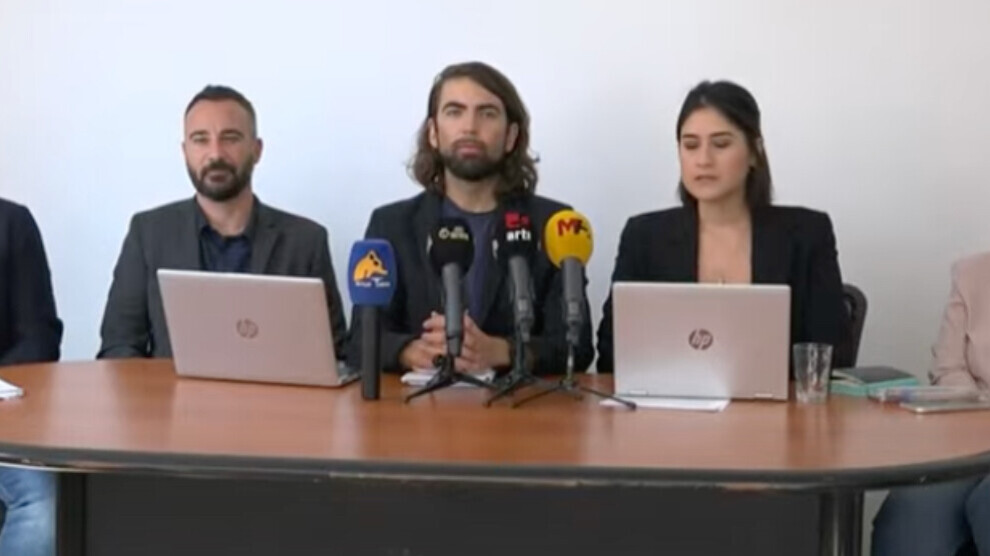International press organizations call for freedom for Kurdish journalists
Nine press freedom and journalism groups to examine the media freedom crisis in the build up to the 2023 elections. IPS
Nine press freedom and journalism groups to examine the media freedom crisis in the build up to the 2023 elections. IPS

The International Press Institute (IPI), together with international press and freedom of expression groups, met with journalists in Amed as part of the "International Press Freedom Mission" to Turkey.
Representatives of the International Press Institute (IPI), Reporters Without Borders (RSF), International PEN, and Italy-based Osservatorio Balcani Caucaso Transeuropa (OBCT) attended the meeting hosted by the Dicle Fırat Journalists Association (DFG). DFG members, journalists from Xwebûn newspaper, Mesopotamia Agency (MA), JINNEWS and Botan International, and Resul Tamur, the lawyer of 16 imprisoned Kurdish journalists, also attended the meeting.
In a joint statement, IPI Deputy Director Scott Griffen, OBCT's Dimitri Bettoni and RSF's Paul Pouchoux, reacting to the "Censorship Law" adopted in the Parliament, said: "The next general and presidential elections are scheduled for June 2023. The free circulation of independent news and information is a vital condition for any democratic election. After years of declining conditions, the mission suggests that politicians from all across the political spectrum will work to end the crisis facing journalism and guarantee freedom of the press and demands commitment to comprehensive reforms. At the same time, the stakeholders interviewed expressed their concerns that the pressure and physical attacks against journalists may increase before the elections. As a mission, we call on the government to take the necessary measures so that journalists can do their jobs free from fear and harassment, especially during the election period."
Visit to Turkey
A coalition of international journalism, press freedom and human rights groups will carry out a three-day mission to Turkey this week to investigate serious, continued threats to independent journalism in the country.
The mission went to Turkey as a new “disinformation” bill that will further enhance the government’s powers to censor news and information goes before parliament.
The bill, with its vaguely formulated definition of disinformation and equally unclear reference to “intent”, and with its implementation overseen by Turkey’s highly politicised judiciary, will put millions of internet users at risk of criminal sanctions and could lead to blanket censorship and self-censorship in the run up to the 2023 elections.
From October 12 to 14, the mission delegates met in Ankara, Istanbul and Diyarbakir, as well as online, with editors, journalists, local civil society groups, Turkish MPs from various political parties, members of government regulatory bodies, foreign diplomats, European Union officials, representatives of leading global tech companies, and the Turkish Constitutional Court.
In addition to the disinformation legislation, other issues the coalition intends to raise are continued prosecution and legal harassment of journalists; journalist safety, particularly in the runup to next year’s elections; press accreditation; surveillance of journalists; and (lack of) judicial independence and its effects on press freedom.